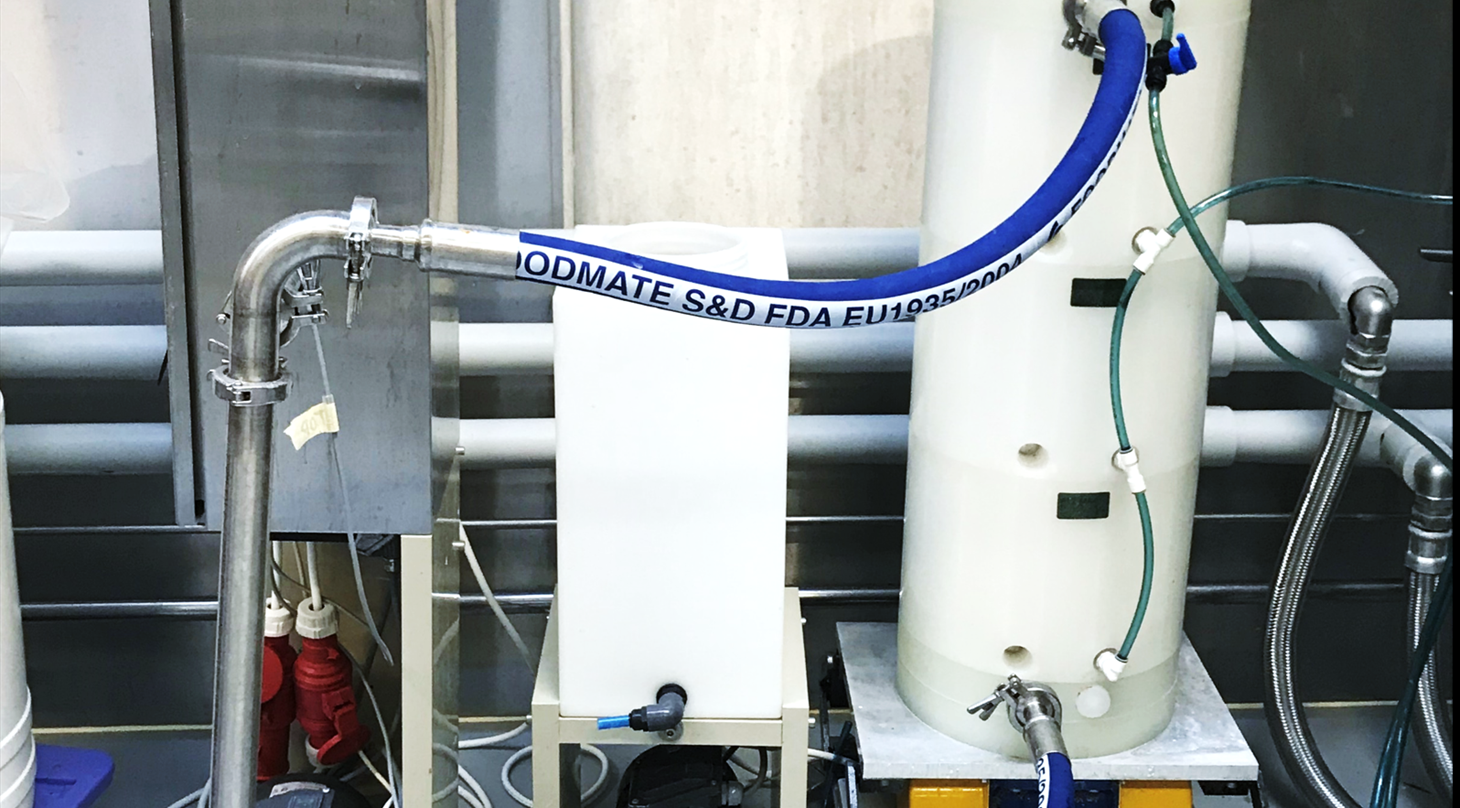
Membrane filtration at pilot scale
Membrane filtration is an efficient technology for separating components in a liquid. Membrane technology is widely used in industries such as food and pharmaceuticals. The liquid containing dissolved or undissolved components is pressurized on one side of the membrane, and depending on the pore size of the membrane, components with a certain dimension will pass through the membrane while larger components are retained, resulting in a permeate and a retentate.
The membrane technology can be used to separate and concentrate a wide range of components, from larger components such as algae or bacteria to smaller molecules such as dissolved proteins and peptides - or even very small salts. The Danish Technological Institute has two types of crossflows (also known as tangential-flow) food-approved pilot-scale membrane filtration systems. Depending on the specific task, the most suitable system is chosen.
- The spiral membrane system can use 6" or 8" spiral membranes with a total surface area of about 20-30 m². The combination of a large membrane surface area and high-pressure results in a high capacity (up to 1000 L per hour) while reducing fouling, i.e., clogging of the membrane surface due to high flow along the membrane surface. The spiral system can be used for microfiltration (MF), ultrafiltration (UF), nanofiltration (NF), and reverse osmosis (RO).
- The SANI membrane system uses special modules with a total membrane surface area of 7.5 m² and operates at lower pressure and flow rates compared to the spiral system. The membranes vibrate vertically to reduce fouling and can maintain a capacity of up to 200 liters per hour. The SANI membrane system can be used for both microfiltration (MF) and ultrafiltration (UF), and in addition to the pilot plant, we also have a smaller laboratory-scale unit.
How can Danish Technological Institute assist you?
The membrane systems are part of Danish Technological Institute pilot plant for biorefining and are often used as a subprocess in the development of innovative products - either in research and development projects or in direct collaborations with companies. It is also possible to conduct a single filtration of a specific solution, and we also offer lease production over longer periods.
Offer and prices
If you are interested, you can contact Beatriz Chambel Soares Vieira.